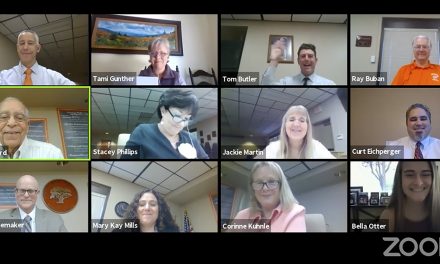At the beginning of 2021, 3 million women had already left their jobs
By Hannah Claire Brimelow
Guest Journalist
NATIONAL — One in three women are considering leaving their jobs or “downsizing” their career — an increase from the one in four recorded during the start of the COVID-19 pandemic.
Last year, 32 percent of women said they felt burnt out. That sentiment is now shared by 42 percent.
The findings are part of a new report titled “Women in the Workplace” published by the consulting firm McKinsey & Co.
According to Newsweek, “the pandemic has both laid bare the disproportionate burdens many women shoulder in caring for children or aging parents and highlighted the vital roles they have long played in America’s labor force. The United States bled tens of millions of jobs when states began shuttering huge swaths of the economy after COVID-19 erupted.”
Employment analysts expected women to re-enter the workforce when schools reopened for in-person instruction, but the mass return never came. Instead, between August and September, the number of women working or searching for work declined.
Nick Bunker, director of economic research at job listing site Indeed, noted that there were about 4 percent fewer mothers of children 13 or younger employed in September when compared to pre-pandemic numbers.
During the same period, more men were employed or seeking employment.
Deloitte Global found that a year and a half after the pandemic started, 51 percent of women say they are less optimistic about their career prospects.
The 5,000 surveyed working women across 10 countries reported being “more stressed and discouraged since the pandemic began as they take on an increasing amount of responsibility at home and in their careers.”
Most women said they had taken on more responsibilities at home and 80 percent said their professional workload had significantly increased since 2020.
“Women are facing the ‘perfect storm’ with heavier workloads and greater responsibilities at home increasingly blurring boundaries between the two,” Deloitte Global inclusion leader Emma Codd told Forbes.
Deloitte reported that 23 percent of women are considering leaving the workforce.
A lack of work-life balance is the number one reason women are considering leaving the workforce.
About 2.4 million women left the workforce by the end of 2020. By February 2021, the number had grown to 3 million. This was largely attributed to lack of child care and low wages.
President Joe Biden included federal funding for child care in his “Build Back Better” bill in a reported effort to help women go back to work.
“Under the plan’s framework, families making up to 150 percent of their state’s median income would pay no more than 7 percent on child care,” writes The Washington Examiner. “Those making 75 percent or less would pay nothing, with the average family receiving $14,800 per year worth of subsidized child care.”
The subsidies would cost $225 billion through 2027. The is also funding allotted for women who want to stay at home with their children or have a relative care for their child.
Men are also feeling the strains of the COVID-19 pandemic with 35 percent saying they felt burned out this year. This marks a 7 percent increase from 2020.














